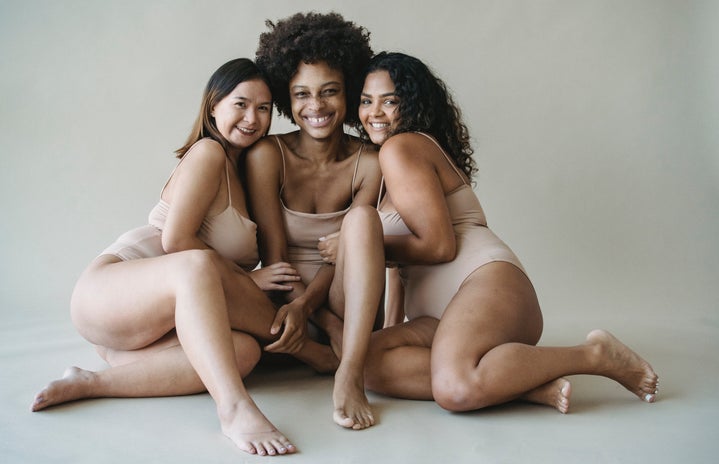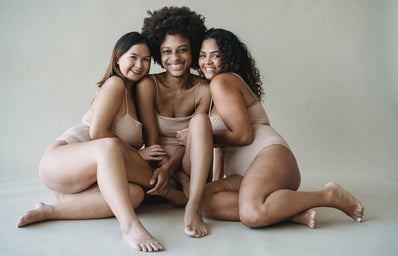As many were eager to celebrate International Women’s Day, I had one question in mind. In what ways are we affirming all women and Non-Binary folks? Oftentimes, what we’ve seen is erasure against marginalized folks, especially looking at the societal perceptions of race, gender and sexuality. We must first recognize that there is no point in celebrating specific holidays until we truly center all women and folks, not just tokenizing them. As a young Black woman myself, I believe it to be extremely crucial always to consider your own community and the marginalized communities around you. There is no liberation until universal equity and liberation are achieved. Simply hiding behind an Instagram post will not change that. As this past year proved to be something else, we must figure out ways to support, uplift and affirm one another: unapologetically, intentionally and authentically. Part of this is recognizing community care and accountability as the core roots. No one is attacking you. Take this as a learning and growing moment to reflect and have such aspects be part of the journey towards full commitment, not Instagram activism for five seconds. As intersectionality was coined as a term in 1989 (intersectionality has always been in practice by marginalized folks, specifically Black and Brown communities) by scholar and activist Kimberlé Crenshaw, what are we doing with it and more importantly, what are we doing with the essential nature of this work?
What Have You Done For Me Lately?
If you truly care about women and folks, please ensure to check-in. Many solely want to reach out in the middle of a tragedy, yet those efforts are not sincere. Your allyship and support should be something that does not come with conditions but rather from a place of genuinely caring about that person and community. You have no idea how much a text or email can go a long way. Marginalized communities are expected to be the “educators” of society. Meaning that privileged folks will always want us to “teach” them about different facets of oppression which they should be learning themselves. As those processes are exhausting and disrespectful, envision what a support system would like in that moment as well as in a general scope. It is not our job to consistently provide and make you comfortable. We do not owe you commentary on every aspect or issue. And, when we say something is harmful, please do know that we mean that with our whole chest. There is no debating in regard to the harm perpetrated against marginalized communities. So, take the time to re-evaluate the ways you’ve been showing or, better yet, ask if you have been showing up at all? Be considerate and recognize that your job is not to be a savior but to rather be a co-conspirator and an advocate ready to put in work without relying on the labor from marginalized groups.

All Is Well When You Mind Your Business.
You can learn so much when you simply let marginalized folks live. As we have seen the overt policing of Lizzo’s body and the overall obsession with what Black women and Queer folks do, there has to be an understanding that our truths are a privilege to be seen. We do not owe you that. Normalize the celebration of marginalized folks living their best life without you yearning to make it all about yourself. Black people are not a burden. Trans* people are not a burden. Queer folks are not a burden. The same for Asian, Hispanic, Latine, Indigenous, Disabled, Neurodivergent and all marginalized folks. As society is constructed to attempt to push the rhetoric that we are somehow “less-than,” your job is to affirm, amplify and get in the trenches. That is all. Marginalized folks have every yet to occupy space in any and every way they choose. There is a constant culture in policing and dictation in regard to how marginalized folks are expected to go about our lives. Let’s abolish that concept.

Regression In Any Direction Is Exclusionary and Oppressive.
If your feminism excludes Trans* women and folks, you are not advocating for what you think you are. The goal of intersectionality is to acknowledge and examine the ways race, gender, class, sexuality and all societal aspects are connected to explain the locomotions of oppression while also uplifting the validity of all marginalized identities. If you claim to be progressive in one direction yet you are regressive in another, altogether, you are actively engaging in oppression. Whatever you do and say must acknowledge that there are more folks in the world than yourself and those like you. The goal should not be tone-deafness, color-blindness or a comfortable route to “sameness.” The goal is to grow and recognize that all of these applications are processes, yet how are you going to affirm the folks who have been consistently doing the work, even though they shouldn’t have to? Are you willing to understand those aspects and put them into practice? Marginalized folks are not talking points. A given should be recognizing their humanity from the jump and act based on the internal and external attributes of white supremacy and racism. You can not engage in community care until you begin a process of self-accountability and development. Figure out ways to ensure that your actions are being matched with what you’re taking two seconds to share on social media.

Accountability Check: Questions to Ask Yourself.
“I am no longer accepting the things I cannot change. I am changing the things I cannot accept.” – Angela Yvonne Davis, Activist.
-
Am I centering marginalized communities in my efforts?’
-
Do I actively engage in listening and support?
-
How often do I engage in check-ins and “allyship?”
- If there is a limited answer, that is insufficient.
-
Do I get defensive when I am held accountable?
-
Am I recognizing that anti-oppression education is my responsibility?
-
In what ways will I uplift marginalized communities?
-
What does accountability look like?
-
Am I actively taking steps to be an ally?
-
Am I centering marginalized communities’ concerns as top priorities?
-
Do I continue to associate myself with entities and folks who are oppressive?
-
What does growth look like?
-
Do I know the difference between taking up space versus engaging in complicity?
-
How often do I engage in my efforts outside of “trending” events?
– Am I keeping the same energy 24/7?
-
For International Women’s Day, did I recognize that there is more work to be done?
-
Am I really committed to this work?

A Note.
It is crucial to recognize the overall responsibility of centering and elevating all women and Non-Binary folks. Not just on a specific day but through every aspect of your daily life. This is not daunting; it is a step towards accountability and support. You cannot claim to be supportive of “all women,” yet your platform excludes and does not uplift Trans* women and folks, BIPOC women and folks, as well as all marginalized communities. There must be a commitment to affirming and going beyond simply acknowledging your privilege. That is no longer enough, and it should have never sufficed for you in the first place. There is beauty and validity in all of us. Your efforts should persistently reflect that. Here are several intersectional activists and creatives accounts on Instagram to affirm and support.
-
Angelica Ross (@angelicaross).
-
Blair Imani (@blairimani).
-
Wear Your Voice (@wearyourvoice).
-
Alok V. Menon (@alokvmenon).
-
Steven Canals (@stevencanals).
-
Seeding Sovereignty (@seedingsovereignty).
-
What Radicalized You? (@whatradicalizedyou).
-
Janet Mock (@janetmock).
-
Bree Newsome (@bree.newsome).
-
Vrye (@vrye).
-
Melina Abdullah (@docmellymel).




